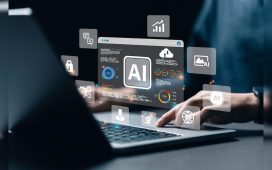“AI could create a scenario that reduces the scarcity of high-level expertise,” says Autor. As more workers from a variety of backgrounds work with AI to quickly gain the high-level skills usually reserved for specialised experts with elite backgrounds, “it would open the door for non-traditional candidates, particular those without a four-year degree”.
He continues: “If the demand for highly specialised knowledge remains elastic” – for instance, in industries such as engineering, medicine, computer science and law – “that would mean more jobs for non-traditional candidates who, assisted by AI, would be able work at a high level of expertise. It could level the playing field.”
In this scenario, it’s possible the experts who were once scarce might see a dip in their wages as they see more competition in the labour market. However, it may be more likely that across industries, more workers – and a more diverse pool at that – would receive a higher salary than they might currently be making in lower skilled jobs that don’t require a college degree.
Organisation and advocation
Muro says this may be a challenging period for every worker, as the technology is still developing.
MIT’s Acemoglu emphasises the outcomes for debates around worker pay and other AI-related workplace issues will largely depend on who is making the decisions about how the technology is developed and deployed, and what subsequent worker protections may follow.
Workers may have a part to play, says Dubal.
To help drive these decisions in a human-favourable direction, she suggests workplace organisation and policy advocation may help workers keep compensation stable and protect their earning potential. For instance, if workers can “sit at the table with their employers and regulators”, they can help companies understand the intrinsic value of human labour. She points to European workers advocating “for laws that limit the use of AI in certain contexts, like the AI act that’s being developed”.
For now, it’s not clear which type of labourers will find their pay most affected by AI – after all, some experts have said highly skilled workers are just as vulnerable to automation as their lower-skilled counterparts. But, says Muro, “nobody gets off scot-free here”.
Additional reporting by Leah Carroll










